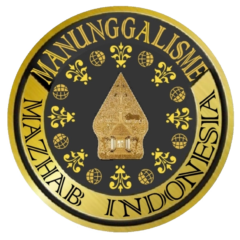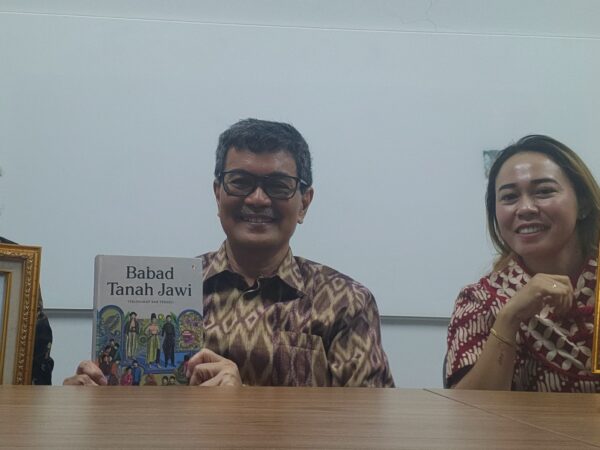- Mazhab Indonesia (Manunggalisme): Paradigma, Filsafat, dan Teori Melihat Hubungan Dunia Berdasarkan Nilai-Nilai Kemanunggalan Dunia.
- Mazhab Indonesia (Manunggalisme): Paradigma, Filsafat, dan Teori Melihat Hubungan Dunia Berdasarkan Nilai-Nilai Kemanunggalan Dunia.
An Indonesian School of International Relations? Founding “Indonesian School” Manunggalism

Mazhab Indonesia (Manunggalism): Indonesian School of World Relations has successfully organized the 1st Indonesian School Congress on August 28, 2024, which produced the “Demak Declaration” document which contains eight matters regarding ways to build World Relations (WR). This congress theme is “Era Manunggalian: Menggerakkan Nilai-Nilai Keindonesiaan (Pemurnian) Untuk Mewujudkan Tata Dunia Baru Abad Ke-21.” The congress was held in four sessions, namely the first session was to explore “Ontologi Indonesia: Menggali Nilai-Nilai Keindonesiaan di Dalam Sejarah, Peradaban, Kebudayaan, Tradisi, Filsafat, Ideologi, Sosial, dan Manusia“. Second session was to explore “Epistemologi Indonesia: Pemikiran Nilai-Nilai Keindonesiaan dalam Membangun Tata Dunia Baru Era Manunggalian Abad ke-21“. Third session was to explore “Aksiologi Indonesia: Perwujudan Nilai-Nilai Keindonesiaan dalam Tata Dunia Baru Era Manunggalian Abad Ke-21 (Hubungan Internasional Barat vis-a-vis Hubungan Dunia Timur)“. And, final session was the codifiying of “Demak Declaration” document which contains eight matters regarding ways to build World Relations (WR).
There is a question regarding the congress that how the Mazhab Indonesia in founding An Indonesian School of International Relations? And based on the “Demak Declaration“, Mazhab Indonesia need to found and to establish “Indonesian School of World Relations” with Grand Paradigm, Philosophy, and Theory of Manunggalism (Mazhab Indonesia). This step is a reference for further exploring the values of Indonesian ontology, epistemology and axiology at the regional and international levels to introduce and develop of the “Indonesian School” through Mazhab Indonesia (Manunggalism): Indonesian School of World Relations. The next step is the process of exploring the ontological, epistemological, and axiological of the “Indonesian School”.
What is “Indonesian School” ( “Mazhab Indonesia” ) in Ontological Question? How does the “Indonesian School” reside in Epistemological Question? And why founding Indonesian School in Axiological Question? What do we need: the Indonesian School of International Relations? or the Indonesian School of World Relations? We present this article to bridge the shift in understanding of International Relations scholars whose approach is still Western-centric to an Eastern-centric approach. Therefore, the Indonesian School (Manunggalism): Indonesian School of World Relations presents ways of thinking about seeing the world from the East beyond the “Indonesian School of International Relations”.
The Indonesian School (Manunggalism): Indonesian School of World Relations is a central paradigms, philosophies, and theories initiated by Adi Rio Arianto and Gesti Anggraini in seeing the world (worldview) based on the World Kemanunggalan Values (Nilai-Nilai Kemanunggalan Dunia: Gotong Royong, Kesatuan, dan Kerukunan) of “Manunggalism” both in the space of ontology, epistemology, axiology, and eschatology of the natural order of the universe (cosmic). The Indonesian School expands the construction of the world order by understanding the world within the framework of thinking “World Relations System (WR)” beyond the “International Relations System (IR).”
Based on the 1st Indonesian School Congress on August 28, 2024, the “Demak Declaration” document contains eight matters regarding ways to build world relations. The 1st Indonesian School Congress on August 28 – September 28, 2024 “The Manunggalian Era: Mobilizing Indonesian Values (Pemurnian) to Realize the New World Order of the 21st Century”. The Indonesian School establishes eight foundations for the study of World Relations, namely: History, Civilization, Culture, Tradition, Philosophy, Ideology, Social, and Humans nature as the World Institutions in forming World Order interactions containing eight basic values, namely:
- Ancient Indonesian/Ancient Nusantara, Ancient Egypt, Mesopotamia, and Persia are the historical roots of the Eastern World that spread to China, Russia, Indonesia (now), India, Iran, Mongolia, Egypt (now), Arabia, Turkey and the unification of all nations on the continents of Asia, Africa, and Eurasia following their rotation cycle.
- In the World Relations System, there is a rotation of world leadership according to Hakim Zaman, namely “Manunggalistiwa” as “a condition where the cycle of world order runs side by side between the leader and the led (Eastern world vs. Western world) following an unbroken straight line, which divides and connects the world continuously forming an eternal “Manunggal Peace System” (Teori Perdamaian Manunggal);
- “The World Relations System is Gotong Royong” which is a reference for world interaction in accordance with the basic values of Adimanusiawi throughout the world, namely “Humans are obedient creatures (Javanese: Manungso Kuy Makhluk Sing Manut” with the development of its system, namely Barbarianism, Communalism, and Gotong Royong;
- World Leaders are the world-nations of the world who are given the mandate to control the era as World Leaders/Chairman in accordance with the leadership area by prioritizing the values of Permusyawaratan (Deliberation) in order to maintain world balance;
- World War should be avoided, but is allowed for the sake of world security and peace by maintaining world order, especially for the safety of children, women, the elderly, and humans who do not participate in war, as well as the natural environment in accordance with core values of Geometricism;
- The essence of Geometricalism of Nations is to strive for, maintain and improve “Haryamatra” (Kemakmuran) namely “the greatest prosperity in all regions of the world” in accordance with the values of Kemanunggalan Dunia: gotong royong, kesatuan, and kerukunan (harmony);
- World Security is a form of security for the use of the eight dimensions of the world (land, sea, air, underground, equator, vacuum, galaxy, and cyber) in accordance with the values of Adibumi, Pranata Dunia, and “Geometrism” based on Geometripolitics.
- “Adibumi Manunggal” is the World Government System for world-nations in the Manunggalian era throughout the world, and the task of the Adibumiawan (wise adult men) and Adibumiawati (wise adult women) is to disseminate the values of Kemanunggalan Dunia in accordance with Pranata Dunia and Manupolitics.
The Indonesian School (Manunggalism): Indonesian School of World Relations aims to understand the existence and substance of all philosophies of nations (both Eastern and Western philosophy) through a combination of scientific science, historical research of ancient texts, and mystical treatises; critically analyzing the spirit of the current era throughout the world; and synthesize paradigms, philosophies, and theories for the order of: Manunggalistiwa, Kemanunggalan Dunia, and Manunggal Peace Theory.
In the spirit of Manunggalian, the Indonesian School builds Eastern philosophical methods to strengthen the Eastern World Relations Theory (WRT) based on Mysticism-Manularism, balancing Western philosophical methods of Western International Relations Theory (IRT) based on Materialism-Secularism. The synthesis is the Discipline of World Relations.
The Manunggalian spirit was built from the essence of the thoughts of the Indonesian School published in UGM Digital Press with the title “Manunggalism: Paradigm, Philosophy, and Theory to View the World Relations (WR) Belong to Indonesian School (Mazhab Indonesia) in Manunggalian Era 21st Century“. Browse the article at the following link https://digitalpress.ugm.ac.id/article/433 . Or browse all authors’ journal articles in this issue at the link https://digitalpress.ugm.ac.id/explore/social-sciences-and-humanities/40 .
Manunggalism scholars build ways of paradigm, philosophy, and theory to carry out Manunggalian based on the reorganization of the world into 8 (eight) parts, namely history, civilization, culture, tradition, philosophy, ideology, social, and human. Purification moves multipolarly in the fields of literature, art, architecture, music, politics, law, science, religion, and in the intellectual field.
Thus is “Manunggalian Man.” The Indonesian School is actively producing philosophers in the power of oral (discussion), writing (publication) and movement (advocacy) Purification of the “Manunggalian” World of the 21st Century. In addition, the Indonesian School also expands the network of cooperation between thinkers in paradigm, philosophy, and theory in order to connect the Indonesian School with other world schools such as: the English School, the American School, the Copenhagen School, the Canadian School, the Russian School, the French School, and the Frankfurt School, the Indian School, also the Chinese School.
Meanwhile, the Indonesian School (Manunggalism): Indonesian School of World Relations has given birth to several theories, namely World Relations Theory, Geometripolitics, Fifth Base World Security, World Geometrian War, and Manunggal Peace Theory.
To be able to understand more about the “Indonesian School (Manunggalism): Indonesian School of World Relations” please visit the link to the work on this topic that has been published in UGM Digital Press: https://digitalpress.ugm.ac.id/article/433
Visit Google Sholar https://scholar.google.co.id/citations?user=lrNPJsOQUHwC&hl=id



